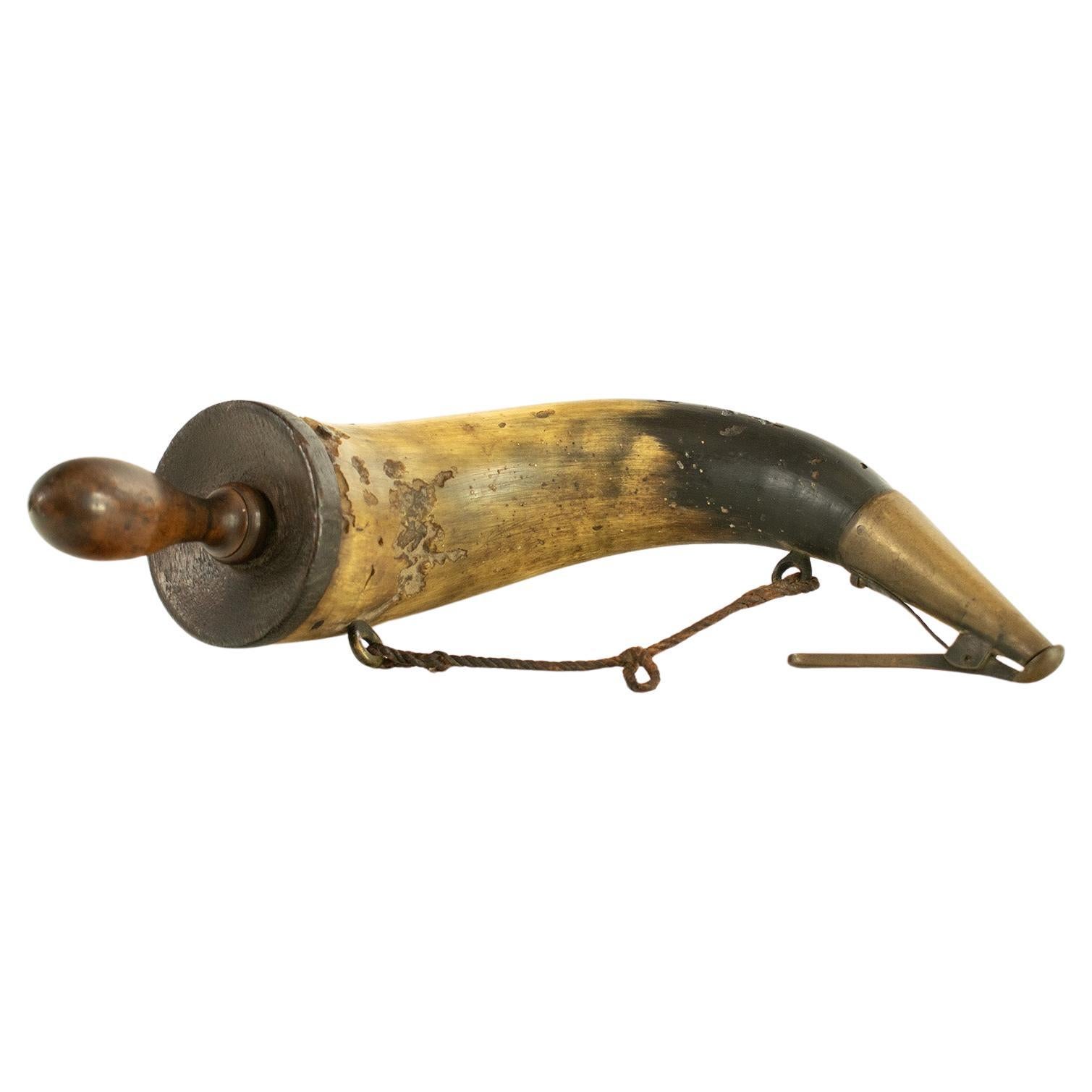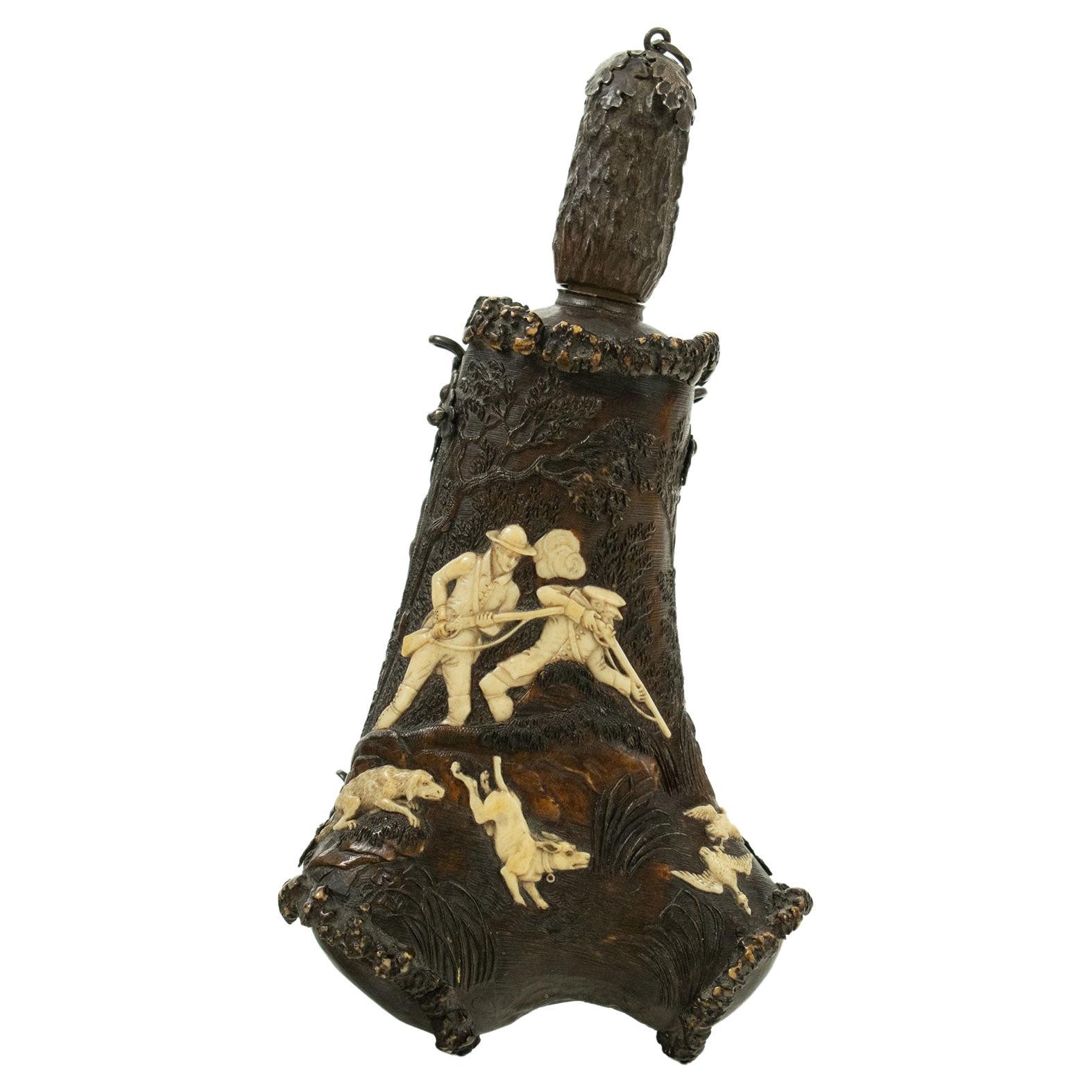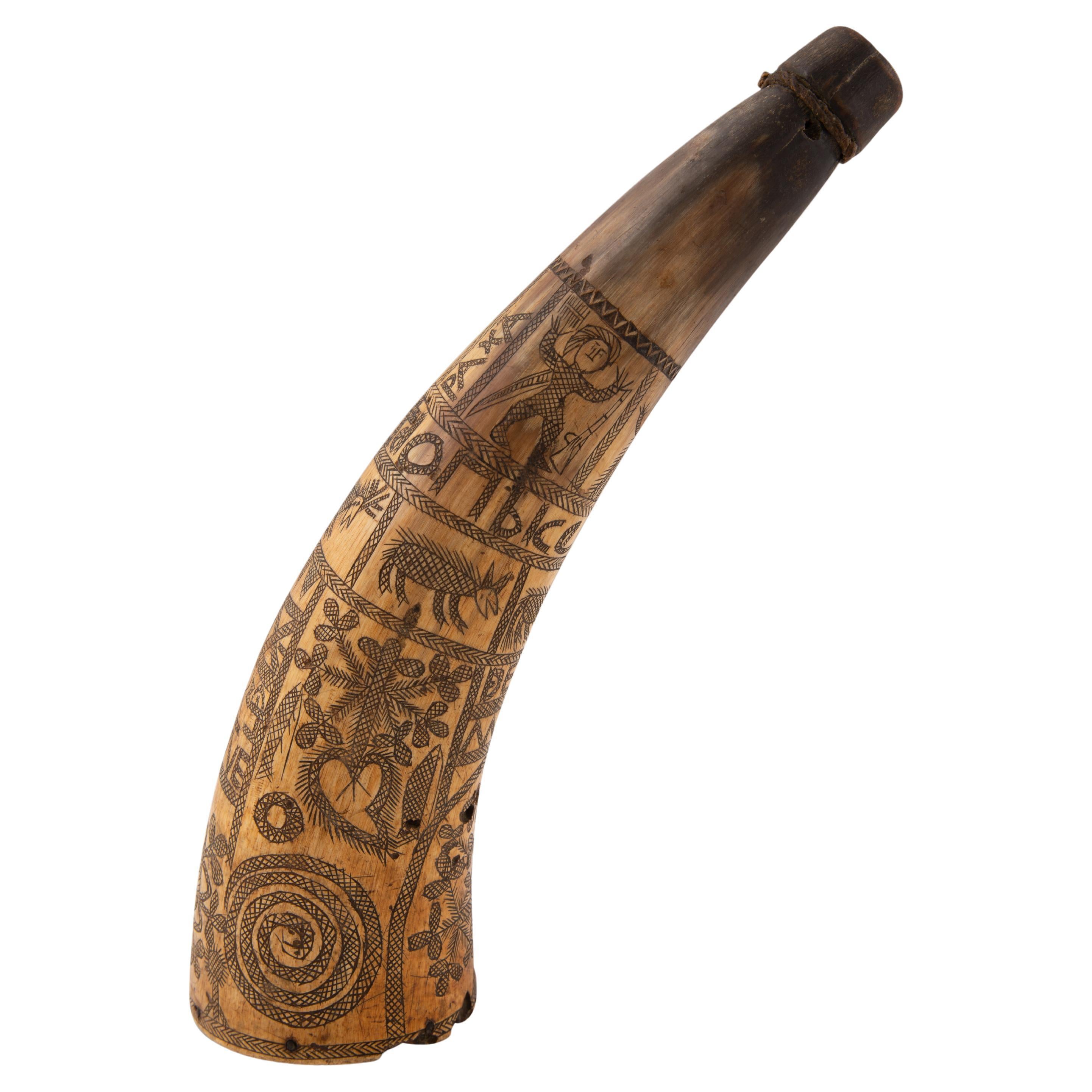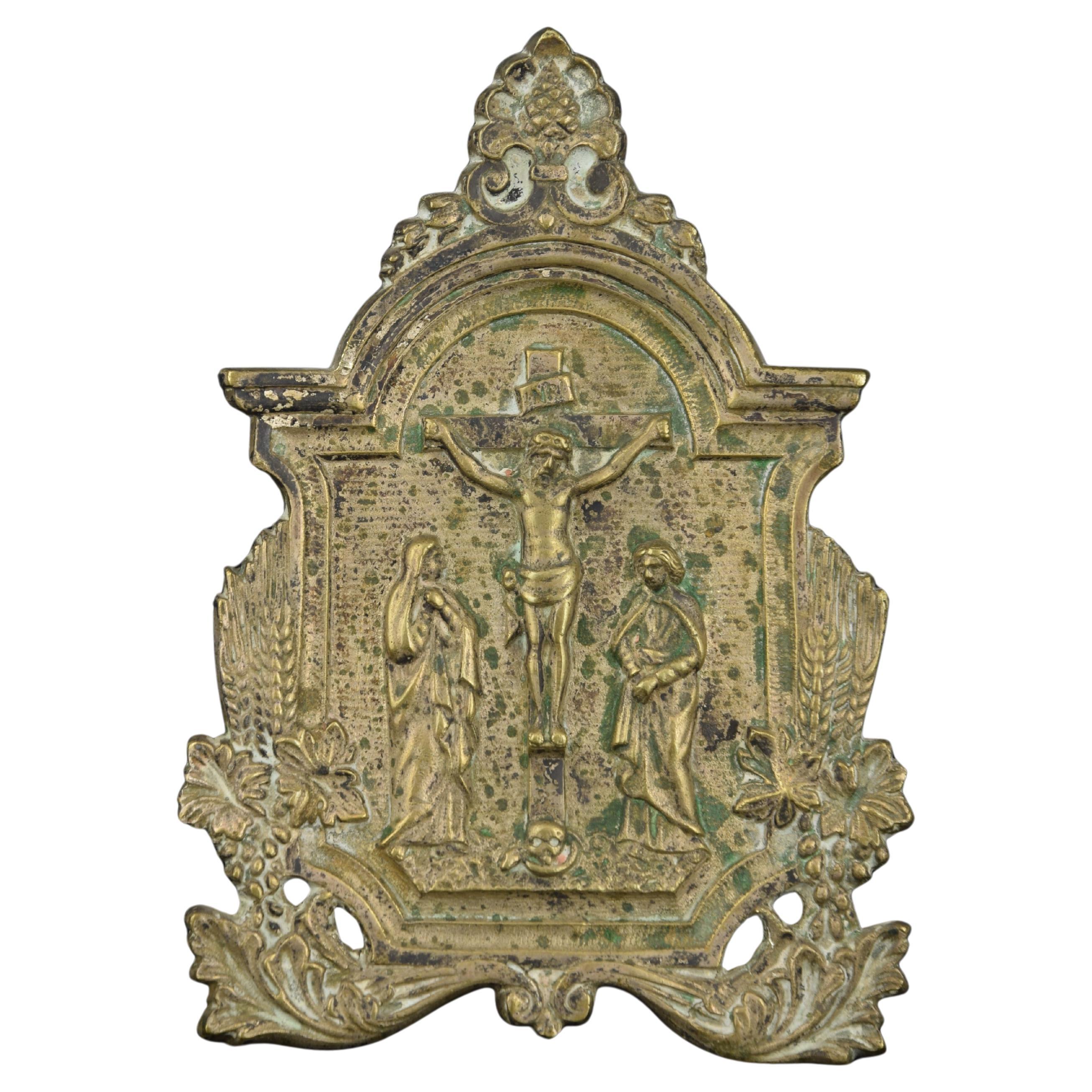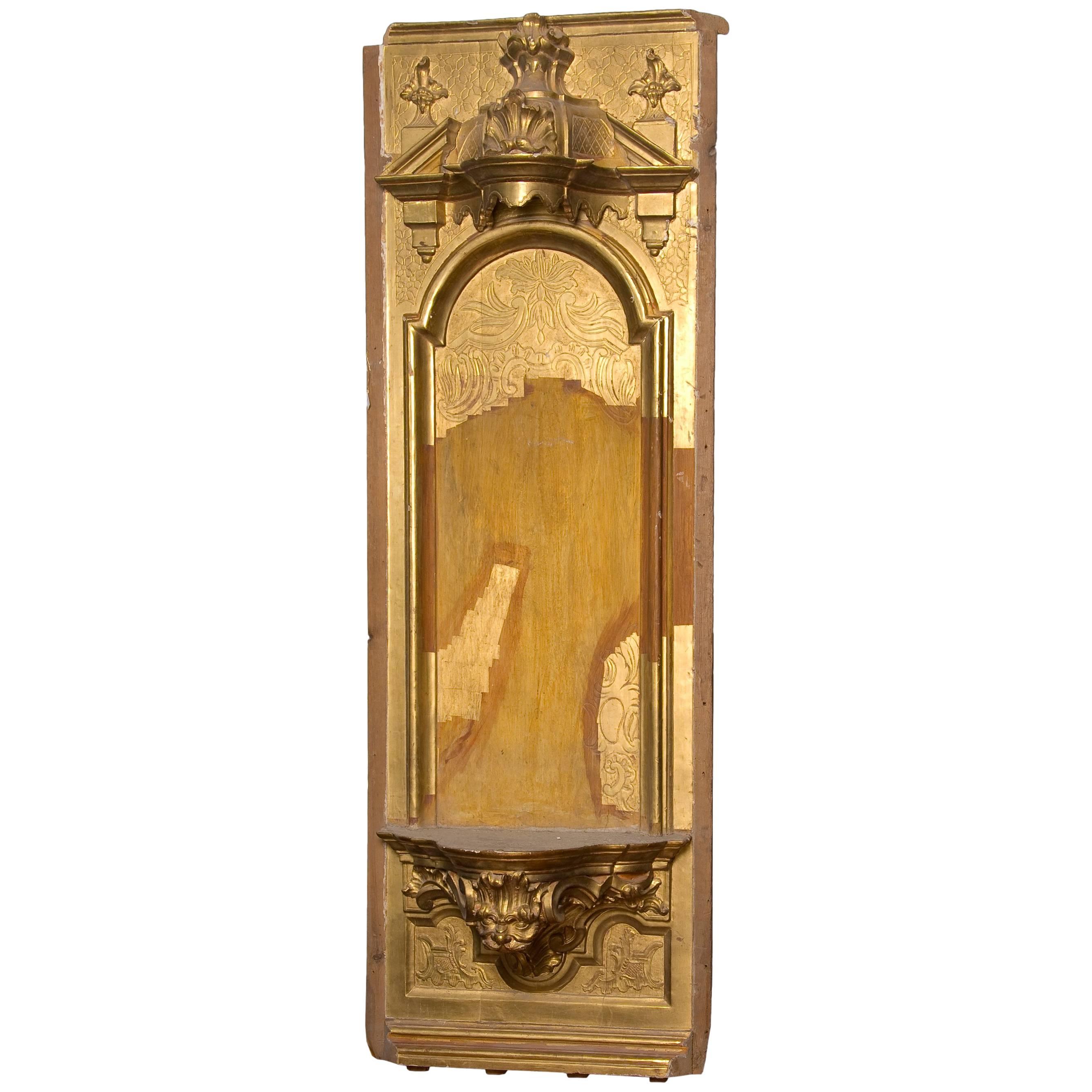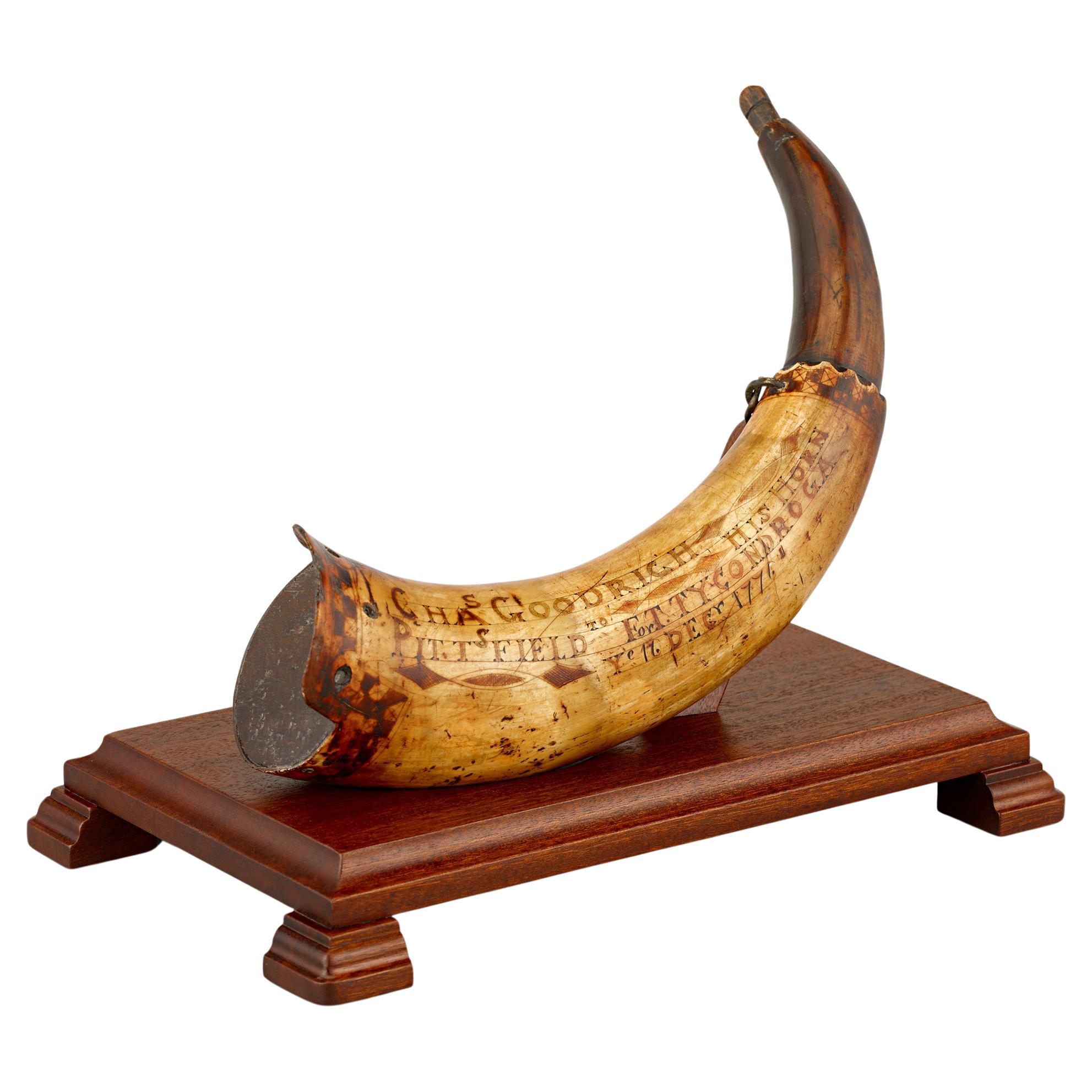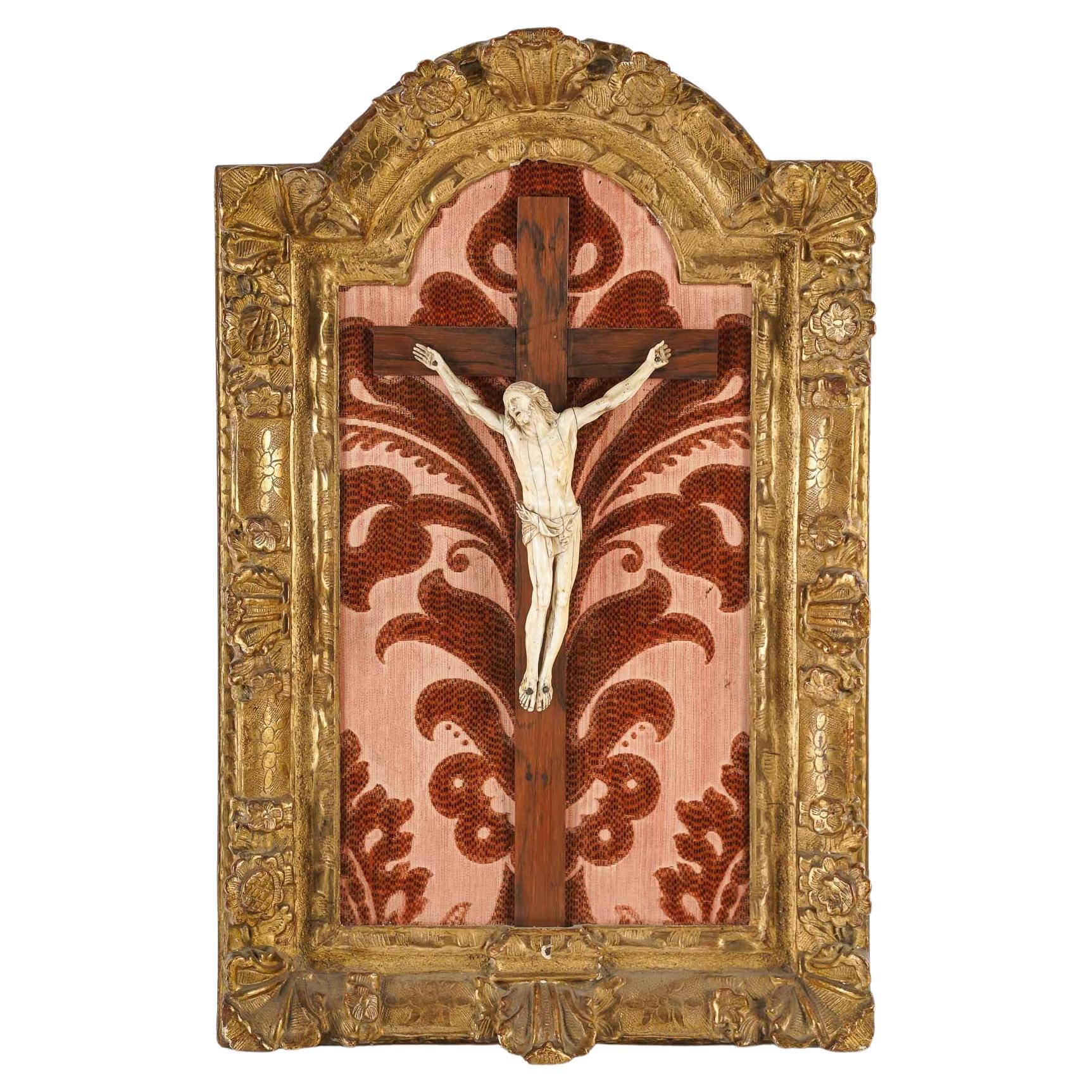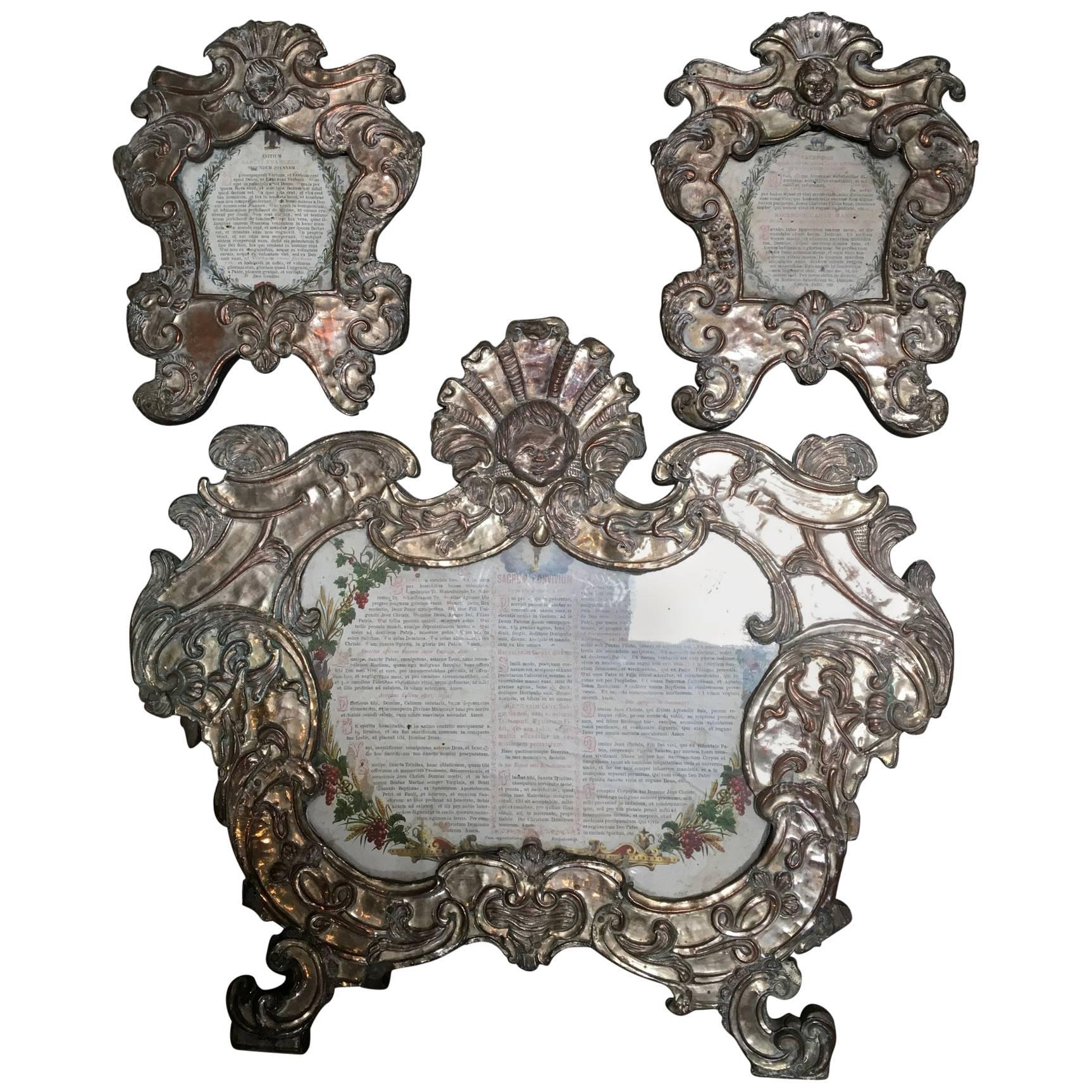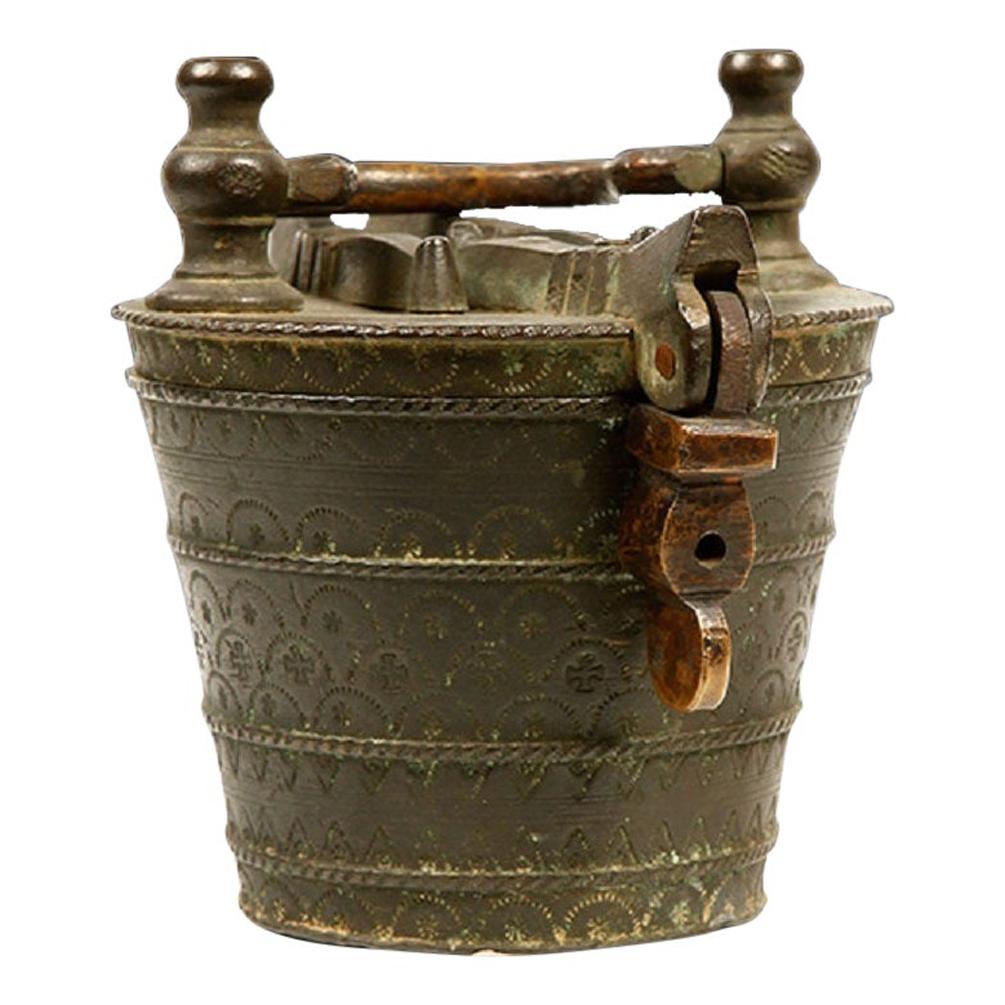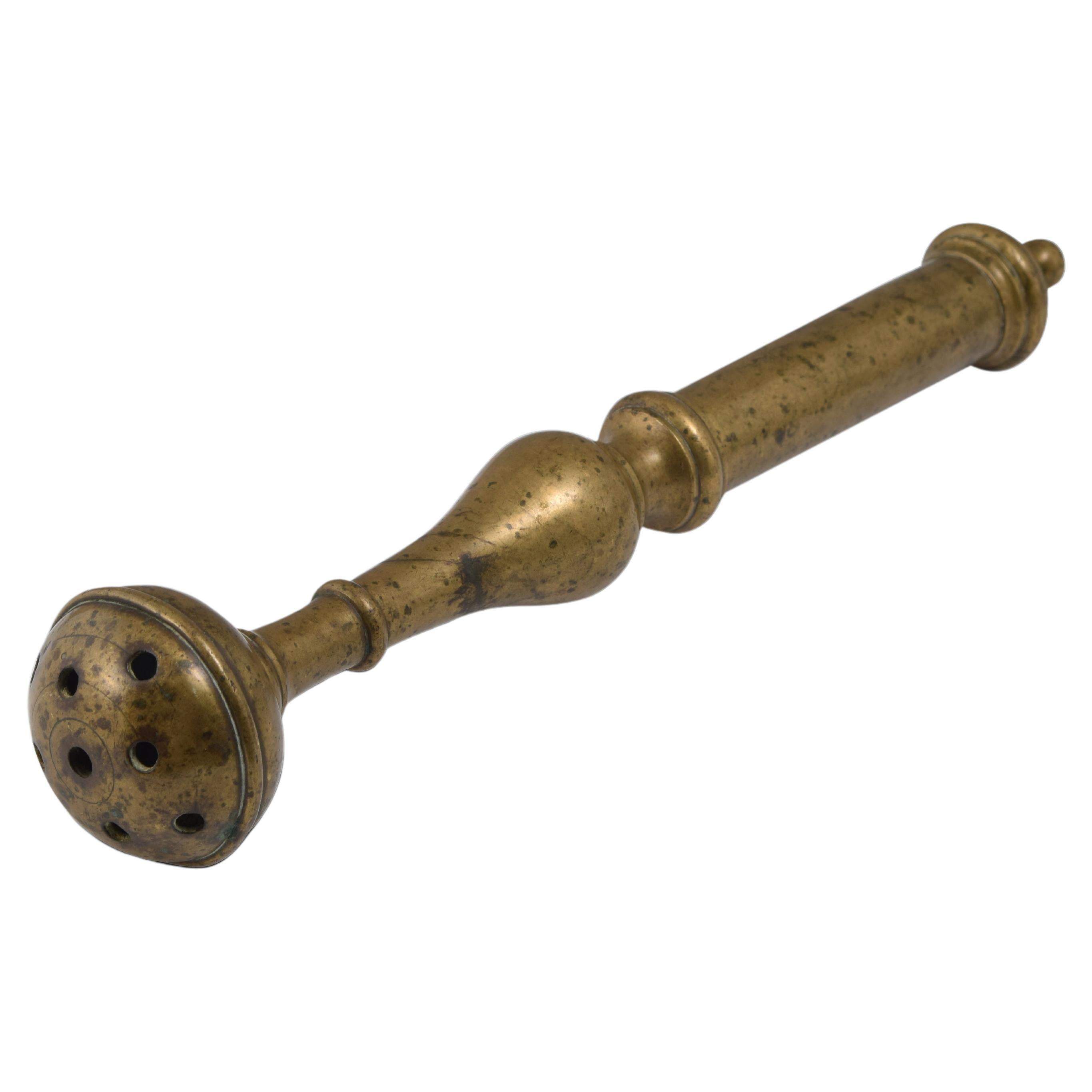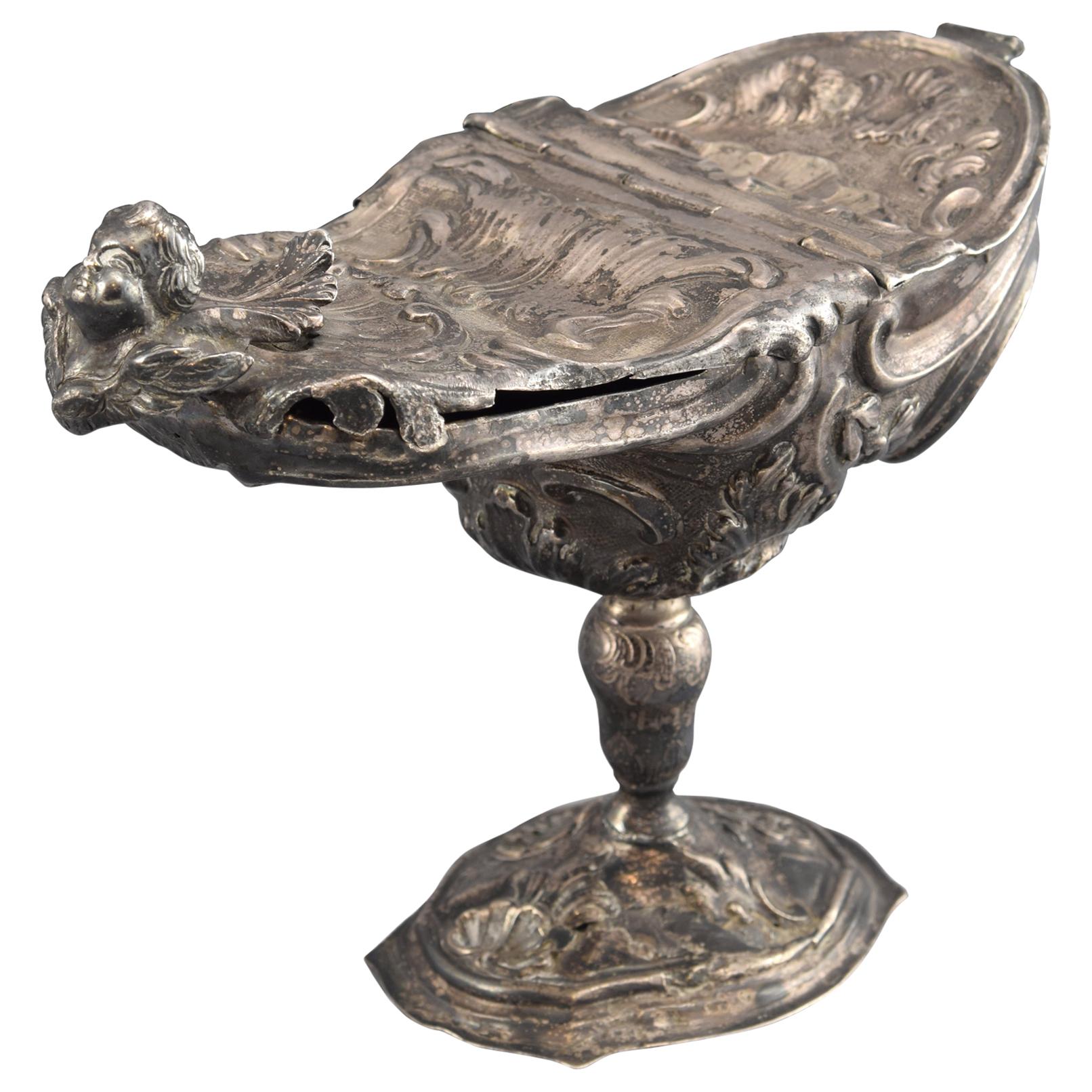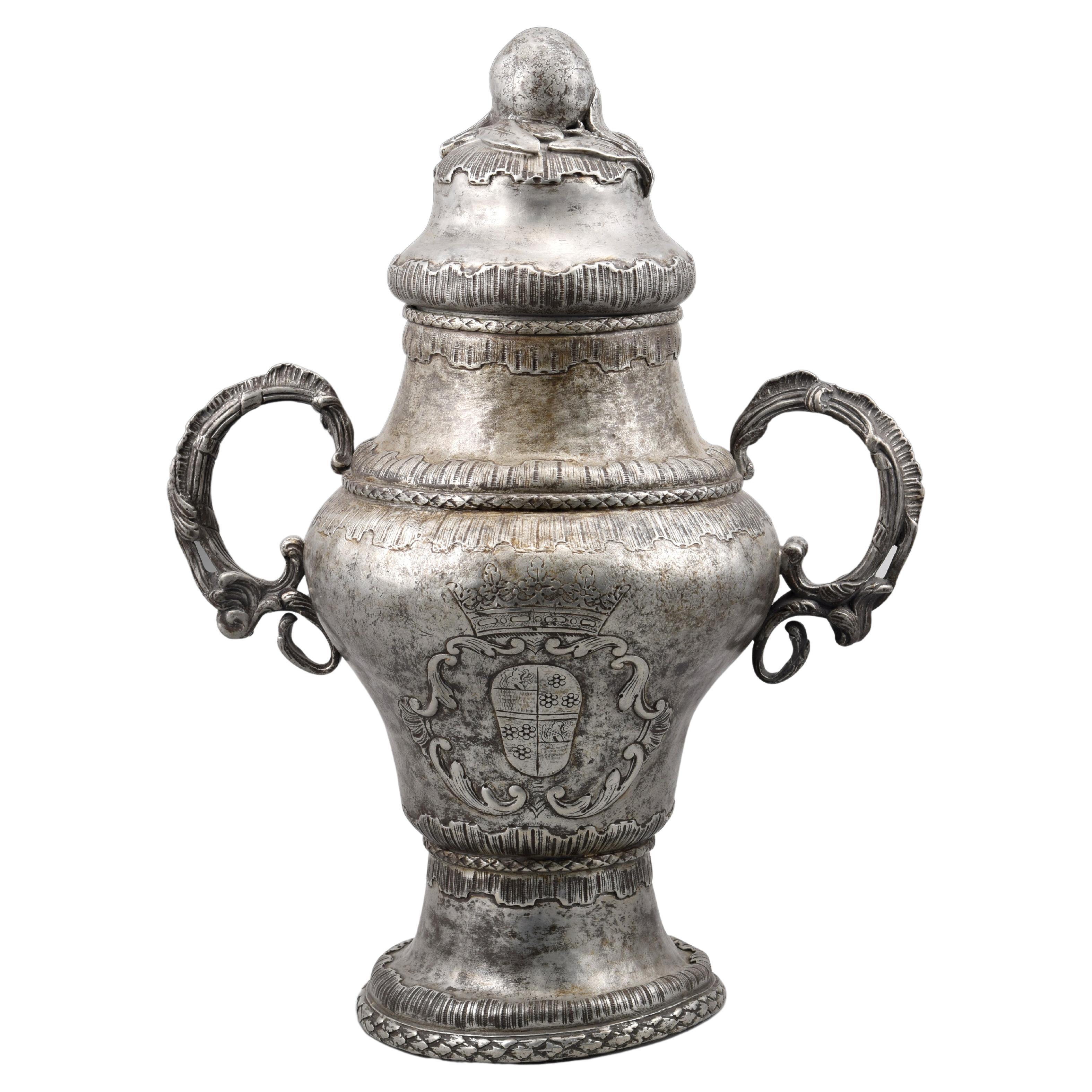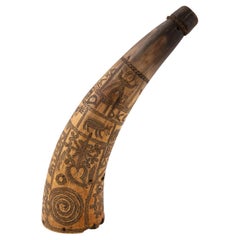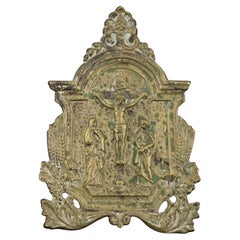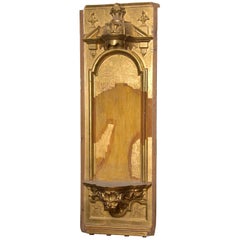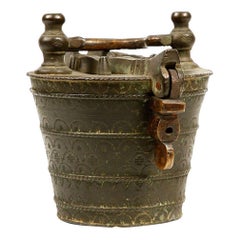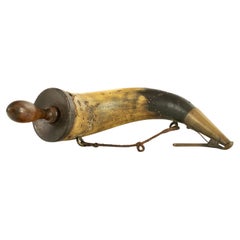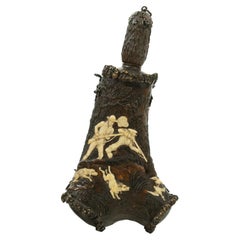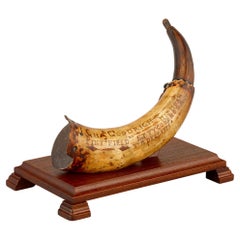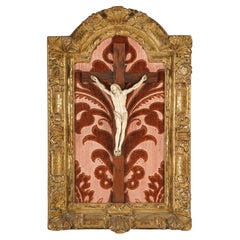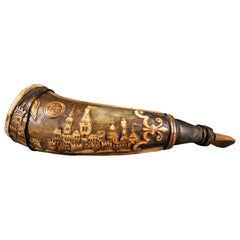
Powder Horn, 18th Century
View Similar Items
Want more images or videos?
Request additional images or videos from the seller
1 of 15
Powder Horn, 18th Century
About the Item
- Dimensions:Height: 3.94 in (10 cm)Width: 10.24 in (26 cm)Depth: 3.15 in (8 cm)
- Style:Rococo (Of the Period)
- Materials and Techniques:
- Place of Origin:
- Period:
- Date of Manufacture:18th Century
- Condition:Wear consistent with age and use. Minor losses. Minor fading.
- Seller Location:Madrid, ES
- Reference Number:Seller: ZF06181stDibs: LU2951318895452
About the Seller
4.9
Vetted Professional Seller
Every seller passes strict standards for authenticity and reliability
Established in 1985
1stDibs seller since 2017
342 sales on 1stDibs
Typical response time: 6 hours
Authenticity Guarantee
In the unlikely event there’s an issue with an item’s authenticity, contact us within 1 year for a full refund. DetailsMoney-Back Guarantee
If your item is not as described, is damaged in transit, or does not arrive, contact us within 7 days for a full refund. Details24-Hour Cancellation
You have a 24-hour grace period in which to reconsider your purchase, with no questions asked.Vetted Professional Sellers
Our world-class sellers must adhere to strict standards for service and quality, maintaining the integrity of our listings.Price-Match Guarantee
If you find that a seller listed the same item for a lower price elsewhere, we’ll match it.Trusted Global Delivery
Our best-in-class carrier network provides specialized shipping options worldwide, including custom delivery.More From This Seller
View AllPowder keg. Engraved horn, rope, cork. Spain, 19th century.
Located in Madrid, ES
Powder keg. Engraved horn, rope, cork. Spain, 19th century.
A container for storing gunpowder made from a cow's horn and decorated on the outside with a series of figurative, geomet...
Category
Antique 19th Century Spanish Neoclassical Revival Sports Equipment and M...
Materials
Metal, Other
Bronze pax. 18th century
Located in Madrid, ES
BRONZE PAX.
The plaque that forms this element, formerly used in mass to give the osculus of peace with decorum, has been decorated with varied reliefs: in the lower part, vegetal sc...
Category
Antique 18th Century Spanish Rococo Religious Items
Materials
Bronze
Giltwood Niche. Rococo, 18th Century
Located in Madrid, ES
Hornacina formed by a back decorated with molding and a support for a sculpture decorated with a masque and vegetal motifs and topped by a split pediment with a central motif worked ...
Category
Antique 18th Century European Rococo Religious Items
Materials
Wood
Bronze Weight, 18th Century
Located in Madrid, ES
Weight of the 18th century. Bronze.
Bronze weight, incomplete, with the container glass and two of the smallest, all decorated in cold with incised and...
Category
Antique 18th Century European Neoclassical Scientific Instruments
Materials
Bronze
Bronze Aspergillum, 18th Century
Located in Madrid, ES
Hyssop. Bronze, 18th century.
Swab made of bronze, forming the usual circular part, followed by a shaft decorated with moldings, which separate a tubular part from another with a b...
Category
Antique 18th Century European Neoclassical Religious Items
Materials
Bronze
Silver Incense Boat 'naviculae', Possibly Portugal, 18th Century
Located in Madrid, ES
Naveta. Silver. Possibly Portugal, 18th century.
Base with counterweight. With hallmarks.
Naveta with oval foot decorated with relief elements and moldings, balustrade foot and body with light boat shape, presenting a hinged lid in the front, a widening in the lower area towards the foot and a decoration distributed throughout the exterior base of rockery motifs and plant elements (the same theme is presented on the foot and base) on a background of chopped luster, with an angel's head on two wings in relief towards the peak, accompanied by plant elements (the which protrude from the edge of the lid). Although the shape of the piece follows in general lines the most usual prototypes in these incense containers used in the liturgy, it is necessary to indicate that it was more frequent to find them more similar to a ship. The naveta's belonging to the influence of Rococo is clear both for the lines of the object and for the decoration to which reference has already been made (pebbles, plant elements with movement, volutes with pronounced curves, contrasts between concave and convex lines ... ), as well as it is possible to find some points in common with Portuguese works (presents an auction with an angel head in relief a silver naveta with a spoon by Leandro
Gagliardi made in Rome between 1744 and 1750 that is preserved in the Museum of Sao Roque of Lisbon in Portugal, compare with the silver plated censer that the same master made between 1749 and 1751 for the Chapel of San Juan Bautista of the Church of San Roque in Lisbon). The contrast marks present in the upper part of the naveta (the "capitalized" letters in a rectangular space), although it should also be noted that this work does not follow the most striking typology of navetas related to this center (naveta de 18th century silver from the Church of Alcántara de Maranhao, Brazil; naveta by Sebastiao Bernardes dos Santos, dated 1747 from Sé do Funchal, which is kept in the Museu de Arte Sacra Do Funchal in Madeira Portugal...
Category
Antique 18th Century European Rococo Religious Items
Materials
Silver, Other
You May Also Like
LARGE GUNNER'S POWDER HORN Naval - French, late 18th century.
Located in TEYJAT, FR
Original Large French Gunner's Powder Horn, Naval - French, late 18th century. Of large size used to load cannons aboard ship.
With fitted wooden plug and brass dispensing spout.
T...
Category
Antique 19th Century Arms, Armor and Weapons
Materials
Horn, Wood
Fine Carved German or Austrian 18th Century Stags Horn Powder Flask
Located in TEYJAT, FR
A FINE CARVED GERMAN OR AUSTRIAN 18TH CENTURY STAGS HORN POWDER FLASK - The front face expertly carved with two hunters in a wooded river bank scene with hounds and two flighting duc...
Category
Antique Mid-18th Century European Arms, Armor and Weapons
Materials
Horn
$2,279 Sale Price
20% Off
Revolutionary War Powder Horn
Located in New Orleans, LA
Powder Horn
Engraving by Charles Goodrich
1776
Powder horns stand among the rarest and most treasured forms of American folk art. Unlike commercial objects, these deeply personal items were crafted by soldiers, sailors and explorers for practical use during their journeys. Through scrimshaw—an intricate technique of engraving bone or horn with a simple jackknife and filling the crevices with available pigments like soot or ash—these individuals left tangible marks of their hopes, dreams and experiences. This exceptional American Revolutionary War powder horn belonged to Charles Goodrich (1720-1816), a significant figure in early Pittsfield, Massachusetts history. The horn displays distinctive period characteristics with the inscription "PITTSFIELD" clearly visible on its amber-colored surface.
Charles Goodrich, born in Wethersfield, Connecticut in 1720, became a prominent civic leader in Pittsfield. He built the first house in the settlement in 1754 and served in various official roles, including Justice of the Peace and town representative to Boston. While Goodrich's name may not appear prominently in history textbooks, historical documents—particularly his September 3, 1776 petition to the Massachusetts Assembly—reveal his compelling story. The petition shows that Goodrich faced accusations of being a British sympathizer and draft evader. According to his account, he was targeted for his public office, physically assaulted by a man named James Morey and subsequently fined by a local committee. Goodrich maintained that he merely defended himself when attacked and claimed ignorance of requirements to either serve as a drafted soldier or hire a substitute—accusations that branded him unpatriotic during the revolutionary fervor.
The Massachusetts Council's concurrence with Goodrich's petition likely inspired his subsequent military service. His powder horn, bearing the inscription of Pittsfield, accompanied him to Fort Ticonderoga, where Simonds' Regiment of Militia (2nd Berkshire County Regiment) was stationed during the difficult winter of 1776-1777. Fort Ticonderoga, a strategic stronghold in upstate New York, had been seized from the British in May 1775 by Ethan Allen and Benedict Arnold. By the time of Goodrich's service, American forces occupied the fort while preparing for an expected British counterattack. In August 1777, Goodrich and Simonds' Regiment participated in the Battle of Bennington—a decisive engagement where Patriot forces under General John Stark defeated British and Hessian troops. This victory significantly weakened General John Burgoyne's invasion force, contributing to his surrender at Saratoga in October 1777—a pivotal turning point that helped secure French support for the American cause.
Powder horns captivate elite collectors and major museums alike. The Metropolitan Museum of Art recognized their significance by dedicating an entire exhibition to American Engraved Powder Horns...
Category
Antique 18th Century American American Colonial Historical Memorabilia
Materials
Horn
Christ , 18th Century
Located in Saint-Ouen, FR
Christ , 18th century.
Crucifix, Christ, beautiful carved and gilded wood frame, 18th century.
Dimensions: H: 61cm, W: 39cm, D: 7cm.
Category
Antique 18th Century French Louis XVI Religious Items
Materials
Wood
$2,675
18th Century French Reliquaries
Located in Dallas, TX
Set of three 18th century French Reliquaries.
Carved wood with metal repousse over the wood
Each piece contains the original Latin pages framed in o...
Category
Antique Early 18th Century French French Provincial Religious Items
Materials
Metal
$6,720 / set
18th Century Wood and Gesso Altar Vase
Located in Hastings, GB
A hand-crafted wood and applied gesso altar vase, late 18th century with gilt and green banding decoration.
Small areas of loss to the gesso and wear to the paint commensurate with ...
Category
Antique 18th Century German Rococo Religious Items
Materials
Gesso, Wood
Recently Viewed
View AllMore Ways To Browse
Horn Container
Tondo 18th Century
Engraved Powder Horn
Antique Muzzle Loader
Antique Spanish Spurs
Cuirassier Helmet
Jambiya Dagger
Middle Eastern Dagger
Samurai Yoroi
Used Fireman Helmet
African Dagger
Antique Fireman Helmet
Antique Naval Officer Sword
Browning Machine Gun
Cast Iron Canon
Gunpowder Horn
Islamic Helmet
Leather Fire Helmet Used
